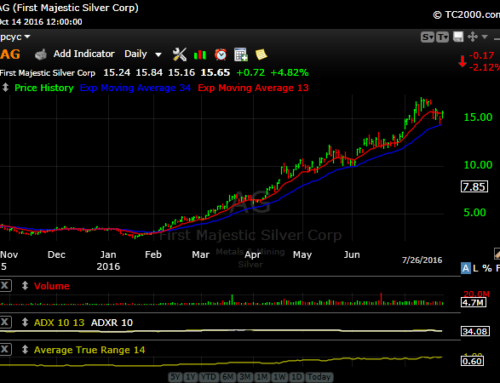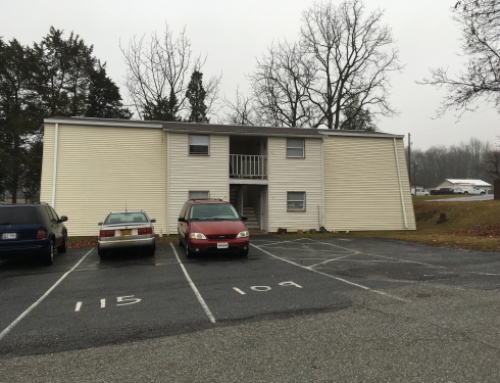I pay my bills as a commercial real estate appraiser, a business I’ve participated in since 1989.
By now, I’ve been through a few recessions… the S&L crisis from 1989-1991, the bursting of the dot.com bubble (2000-2003), the Great Recession of 2007-2009, and the current Coronavirus mess.
Each of these had their own characteristics and underlying factors that caused their respective recessions (Yes, we are likely already experiencing a recession due to Coronavirus).
S&L Crisis
The S&L crisis was the result of lack of regulation of savings and loans that were lending money to big developers.
Back then, the developers would put together plans for a shopping center, office or mall, and order an appraisal directly from a commercial appraiser. That appraisal was then taken to the savings and loan, and the loan was made.
The major conflict here was that the developer would have significant influence on the appraiser. They paid big fees for the appraisals and expected the results they desired in return.
A significant oversupply of retail and office space occurred, resulting in high vacancy rates and underperforming properties. Suddenly, the S&Ls started to go under, we had a mild recession.
The result was new regulation that required the banks to order the appraisal reports. However, conflicts remained, which I will get into later.
Dot.com bubble
After Al Gore created the internet, lol, just kidding!
The evolution of the internet resulted in a new way of doing business for many areas of the economy. The initial success of companies such as Amazon, and some of the businesses that provided some of the technology behind the computers and cell phones back then lead to a huge boom.
This resulted in a ton of copycat type companies and Wall Street jumped on their bandwagon. Any business with a website could go to the investment bankers for financing and to take them public.
Eventually, some of these companies traded at ludicrous valuations without having any sort of actual earnings.
And ultimately, it all came to a screeching halt. Most of these companies traded on the Nasdaq, which peaked in early 2000 at over 5,000. By late 2002, it traded down by over 75%.
The recession that began by the time George W. Bush took office was then exacerbated by 9/11, an event that shook the United States and changed the way everyone traveled about the globe substantially.
The recession was fairly long and this caused the Federal Reserve, chaired by Alan Greenspan, to cut interest rates to levels that had not been seen in decades.
This then lead to a significant housing boom, the second asset bubble to occur in a decade. We know how that ended.
The Great Recession
The great recession began in 2007 as the housing market had topped out in 2006. Housing prices had risen to some ridiculous levels in some parts of the country, as lenders were willing to give just about anyone a mortgage with 100% financing.
This was made worse by Wall Street packaging high risk loans into securities that they then sold to their institutional clients.
Eventually, former Wall Street powerhouses such as Bear Stearns and Lehman Brothers went belly up, and this caused a significant jolt to the financial system, resulting in the bank bailouts.
The recession that resulted from the housing market crash was the most painful we had endured since the 1970’s. The S&P 500 declined by about 50% and the Nasdaq a bit more.
One of the issues leading up to the housing bust was again, the appraisal business. While appraisals were ordered by the banks and mortgage companies instead of borrowers, there was tremendous pressure put on the appraisers to arrive at the appropriate value so that the transactions would occur.
This pressure was usually put on the appraisers by loan officers and mortgage brokers. If an appraiser developed a track record of falling short of the negotiated sale prices in their appraisals, then they would no longer be used.
The same also held true in the commercial appraisal business, although to a lesser extent.
As a result, new regulations in 2010-2011 forced banks to put in a firewall between the loan officers and the appraisers. While that firewall exists, appraisal reports usually come under more scrutiny when the valuation falls short.
The Coronavirus Recession
However, the current situation has the potential to be worse than the others. Here’s why…
A number of states have enacted a policy of shutting down non-life essential businesses. Businesses that are viewed as life essential are grocery stores and drug stores.
Businesses such as restaurants, nail salons, hair salons, most retail stores and a variety of other businesses are to be closed up for, well, who really knows.
While many worry about the employees and owners of such businesses, and rightfully so, the potential issues run deeper.
Many shopping centers, from small to large, are occupied by small businesses. If these small businesses are forced to be closed for very long, they’ll have trouble paying rent.
If these businesses are unable to make their rent payments, the owners of the properties may have difficulty making mortgage payments. And, when that happens, the bottom line of the banks is affected.
I am not sure the state governments that have enacted such measures have completely thought this through.
There is one person in government who certainly knows all about dealing with businesses that can’t pay their rent… President Trump.
His businesses have been through several bankruptcies. Fortunately for him, he’s been able to apply the bankruptcy laws to his advantage and come out stronger.
Because he has been through this, I think he may be a bit more cautious about issuing an actual order to shut things down. But, bureaucrats may have different ideas and try to persuade him otherwise.
Right now, his administration is only recommending that people stay home for a bit. But, I could easily see how they would get the urge to order a national lockdown if there was a substantial spike in the mortality rate from the virus, and that would be a huge mistake.
The impact on the federal government will also be substantial if businesses and individuals are unable to make tax payments. Draconian cuts will be required at some point. Perhaps, that is a good thing for the long run, but it will be quite painful.
European countries such as Greece, Spain and Portugal experienced extended recessions after 2009 because they had so much government debt. Debt markets forced the interest rates on these government notes substantially, and forced their governments to make drastic budget cuts.
Right now, the U.S. is the king of the hill economically. While stock markets globally are getting hammered, as are commodity prices, the U.S. Dollar is trading near its late 2016 highs, and near the highest levels since 2002.
In order to maintain this standing, the economy needs to stay on sound footing. Therefore, a prolonged small business closure, in my view, needs to be avoided.
While Trump has done well to deliver on some of his economic promises, the economy could easily fall backward if the government is forced to raise money through higher taxes and make substantial budget cuts.
There is obviously a health risk from re-opening businesses after a couple weeks. However, with appropriate measures and a sound information campaign, perhaps the Coronavirus can still be held in check with a relatively low mortality rate, as has been the case in the U.S. so far.
The bottom line is we all need to pull together to get through this so we can come out stronger on the other side.





Leave A Comment